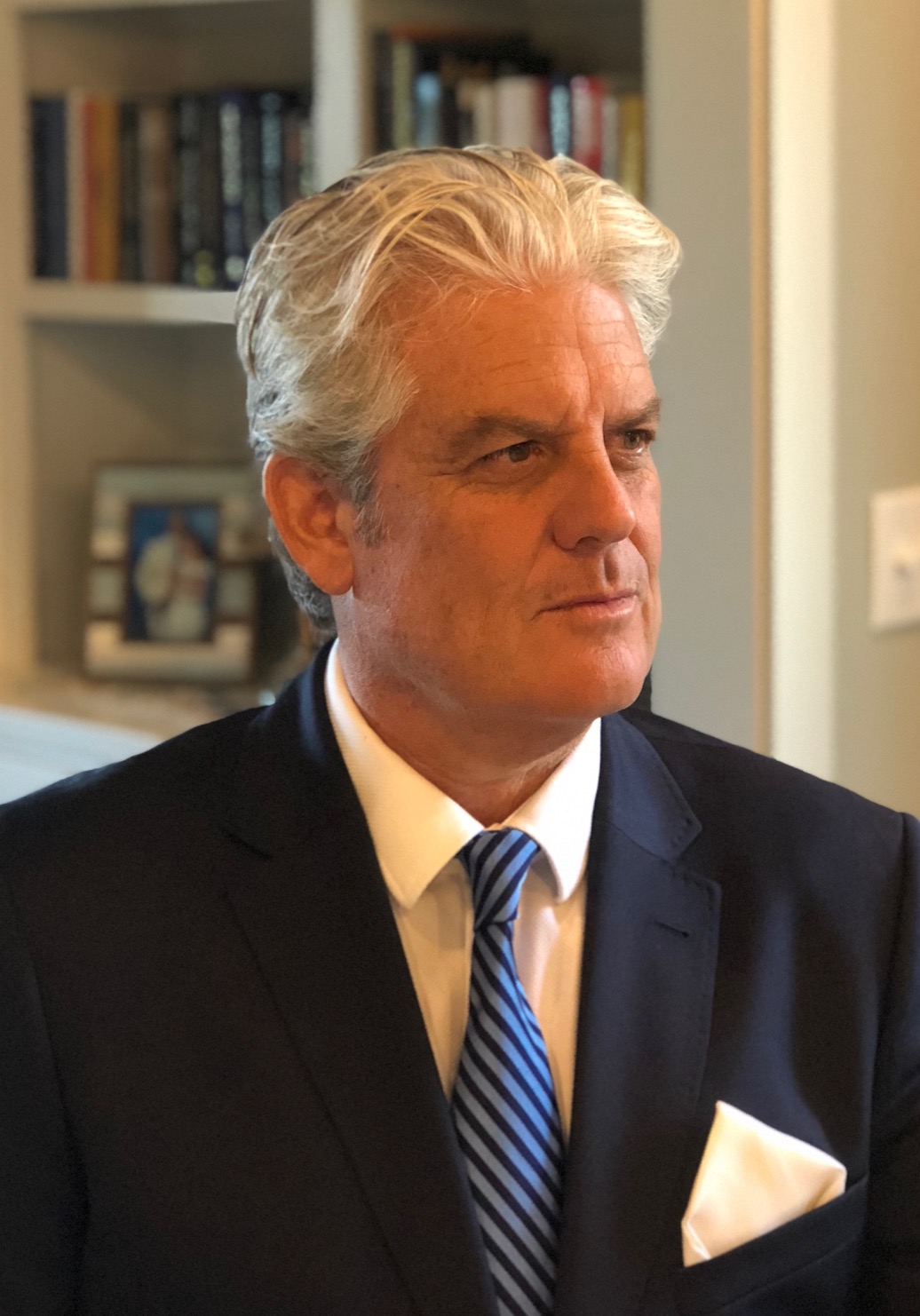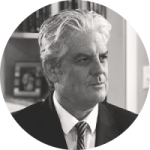From the CEO – April 2019

Chief Executive
Dear Clients,
One of the interesting things we see at PRS through the course of our monthly forecasts, ratings and general observations from the world of political and country risk is the extent to which general principles have endurance of over-time and application to many of the policy choices offered by governments.
This year there are a number of exhibits throughout the world commemorating the life and work of Leonardo da Vinci, and a very good biography by Walter Isaacson was released last year which occupied my time for a number of evenings. Five-hundred years after his death, da Vinci continues to fascinate us through his paintings, inventions, and observations.
The varied interests of da Vinci are particularly instructive for what is happening in France at the moment. During da Vinci’s time the Italian Renaissance was in full-stride. In Florence, ideas were flourishing, symbolized and fostered by the powerful Medici family with its commercial enterprises, banking relationships, and patronage to the arts. Lorenzo de Medici, for one, was key to da Vinci’s blossoming as an artist and later referred the polymath to the Duke of Milan for more practical (read: war-related) matters.
But the Renaissance also gave rise to uncertainty and social anxiety, as increasing global trade and commerce created an unequal distribution of wealth. Perhaps not too surprisingly, the period came to a close through a series of factors, including wars on the Italian peninsula, efforts at censorship by the Catholic Church, and the Roman Inquisition.
The idea of inequality and the political risks that are generated by it have occupied parts of this note to clients and friends for the past few months. In April, I spoke about the apparent staying power of France’s ‘yellow vest’ movement (something that received a slight shot in the arm after a billion was quickly raised to help rebuild parts of the Cathédrale Notre-Dame de Paris after fire destroyed a good chunk of it), and that the demonstrators wouldn’t be leaving the streets for some time.
In late April, President Macron released a series of reforms, intended to respond to the protestors and to prop up his popularity. Among other items, about $5.6 billion in personal income tax cuts were announced, as well as a return to pension indexing, the elimination of corporate tax loopholes, and various incentives to get people to work past the age of 65.
To the extent that the reforms were well-received, the key obviously lies in their passage and effect. Despite this – and perhaps not surprising – May Day celebrations in France saw over 150 arrests, and police using tear gas to disperse crowds in Paris. Pour Macron, on peut seulement avoir pitié.
Meanwhile, the notion of social inclusion (and its political cousin, democracy) made an appearance in Sudan’s bloodless coup this month, and just maybe provides a possible opening for more regime transparency and responsiveness in the region.
Al-Bashir’s 30-year reign as the autocratic leader of Sudan came to an end on April 11, as his regime was no longer capable of suppressing the discontent bred by the economic hardships endured as a result of years of international sanctions and the loss of the vast majority of the country’s oil reserves when South Sudan formed an independent state in 2011.
To be sure, PRS noted the potential for a social explosion in our November 2018 update.: Nationwide protests had erupted in early 2018, after deep cuts to spending on subsidies for flour resulted in a doubling of bread prices. A violent crackdown produced a quick restoration of order. But the underlying causes of the outbreak of unrest were not addressed, and the grumbling that accompanied a devaluation of the currency in October, the third of the year, highlighted the risk of serious upheaval.
Looking ahead, it is tempting to try to predict what lies in store for Sudan by comparing its experience to that of other countries in the region that were rocked by popular rebellion in 2010-2011.
The restraint of the military calls to mind the revolts that toppled President Zine El Abidine Ben Ali in Tunisia and President Hosni Mubarak in Egypt. However, unlike Egyptians, who viewed the generals as agents of democracy, when their true priority was the maintenance or order, by undemocratic means, if necessary, the Sudanese have displayed a healthy skepticism toward even a temporary assumption of political control by the military, and given every indication that they plan to hold Burhan accountable for his promises.
Likewise, the willingness of the diverse opposition factions to join forces behind a strategy of peaceful protest enabled Bashir’s opponents to force him from power without need for intervention by armed groups. As a result, there is little danger that the transition might be tripped up by the bitterness and resentment that would have resulted from a violent civil conflict.
Heading over to Algeria, the end of the long-standing regime of President Abdelaziz Bouteflika was attributable to two factors that figure to have a significant influence on the manner in which events proceed over the coming months and years.
First, the median age of the Algerian population is 28, which means that a growing proportion of the electorate has no emotional attachment to the FLN as the party that led the fight for independence. Nor do younger Algerians share their elders’ vivid recollections of the horrors of the civil war against Islamist militants that resulted in upwards of 200,000 deaths in the 1990s, or revere Bouteflika as the president who brought an end to the brutal conflict.
Second, the security forces did not respond to the prolonged bout of unrest with violence, and instead applied pressure on Bouteflika and the FLN to yield to popular pressure. Lt.-Gen. Ahmed Gaid Salah, the army chief of staff, initially voiced support for Bouteflika, but it was he who ultimately forced the president to step down by calling upon the Constitutional Council to exercise its authority to remove a president who is unfit to fully carry out his duties.
As always, our data and risk metrics have found their way into some very interesting studies. Using our risk data, improvements in the ICRG Investment Profile risk category over a horizon of approximately two years after the beginning of an IMF program were found to lead to significantly fewer interruptions in the programs’ delivery. Lower corruption scores on the ICRG, and improvements in the Socioeconomic Conditions in the year after a program’s approval were also found to be associated with better implementation of conditionality as measured by the quantitative implementation index. (https://www.imf.org/en/Publications/WP/Issues/2016/12/31/Institutions-Program-Implementation-and-Macroeconomic-Performance-17613)
Similarly, the intensity of conflict and its impact on growth in Sub-Saharan Africa was explored using ICRG data. Specifically, it was found that an increase in conflict intensity was associated with about 1.5 percentage points lower growth in countries with relatively strong institutions (according to the ICRG index) compared with 3 percentage points where institutions weaker. (https://www.imf.org/en/Publications/REO/SSA/Issues/2019/04/01/sreo0419)
On the anti-corruption and investment front, PRS’ work continues to flourish as we head to Kazakhstan in a few weeks to speak at this year’s Astana Economic Forum. (https://forum-astana.org/en) Among other items, we’ll be discussing the challenges and prospects for Kazakhstan in the context of increasing competition for leadership in world rankings, as well as how global ratings influence state development stratagems. Other speakers include the IMF’s Christine Lagarde, Stanley Fischer, and Jeffrey Sachs. The conference should be very interesting, and PRS continues to work actively with Kazakhstan to help reduce the incidents of graft in public affairs and improve the climate for business and investment.
We must also note that we had a very delightful meeting in Charleston in late April with representatives of South Korea’s Anti-Solicitation Institution and Anti-Corruption Division.
Finally, clients should note that April was a very busy month for our risk ratings, as the ICRG saw just under 100 adjustments made to the risk profiles of some 70 countries (half of the countries covered)!
Thanks for your continued support, and please contact us if we can be of any assistance.

Chief Executive






